
Tuzla: The Heart of Multicultural Heritage
Tuzla, nestled in the northeastern region of Bosnia and Herzegovina, is a city brimming with history, culture, and natural beauty. Known for its salt lakes, Tuzla offers a unique blend of urban and natural attractions. The city’s name itself is derived from the Turkish word for salt, reflecting its rich salt mining heritage that dates back centuries. The city center is a charming mix of old and new, where Ottoman-era buildings stand alongside modern architecture. The main square, Trg Slobode, is the largest in the country and a perfect spot to soak up the local atmosphere. Nearby, the Pannonian Lakes offer a rare opportunity to swim in saline waters, right in the heart of the city. Tuzla is also a hub of cultural diversity, with a tapestry of influences from different ethnic and religious communities. This is evident in its vibrant festivals, museums, and art galleries. The city’s multicultural fabric is perhaps best experienced at the International Portrait Gallery, which showcases works from artists around the world. For history enthusiasts, Tuzla’s museums provide a deep dive into the region’s past. The Eastern Bosnia Museum is a must-visit, offering insights into the city’s archaeological and historical significance. Additionally, the Old Town, with its cobbled streets and historic mosques, churches, and synagogues, offers a glimpse into Tuzla’s rich cultural tapestry. Nature lovers will find plenty to explore in and around Tuzla. The nearby Majevica mountain range offers hiking trails and panoramic views, while the city parks, such as Slana Banja, provide urban green spaces for relaxation. Tuzla’s thermal spas are also a popular attraction, offering wellness treatments in a serene setting.
Local tips in Tuzla
- Visit the Pannonian Lakes early in the morning to avoid crowds and get the best spots.
- Try the local cuisine, especially the traditional Bosnian dishes like cevapi and burek.
- Take a guided tour of the Eastern Bosnia Museum to fully appreciate Tuzla's historical context.
- If you visit in summer, check out the Kaleidoskop Festival for a vibrant display of music and arts.
- Wear comfortable shoes for walking around the Old Town’s cobblestone streets.
Tuzla: The Heart of Multicultural Heritage
Tuzla, nestled in the northeastern region of Bosnia and Herzegovina, is a city brimming with history, culture, and natural beauty. Known for its salt lakes, Tuzla offers a unique blend of urban and natural attractions. The city’s name itself is derived from the Turkish word for salt, reflecting its rich salt mining heritage that dates back centuries. The city center is a charming mix of old and new, where Ottoman-era buildings stand alongside modern architecture. The main square, Trg Slobode, is the largest in the country and a perfect spot to soak up the local atmosphere. Nearby, the Pannonian Lakes offer a rare opportunity to swim in saline waters, right in the heart of the city. Tuzla is also a hub of cultural diversity, with a tapestry of influences from different ethnic and religious communities. This is evident in its vibrant festivals, museums, and art galleries. The city’s multicultural fabric is perhaps best experienced at the International Portrait Gallery, which showcases works from artists around the world. For history enthusiasts, Tuzla’s museums provide a deep dive into the region’s past. The Eastern Bosnia Museum is a must-visit, offering insights into the city’s archaeological and historical significance. Additionally, the Old Town, with its cobbled streets and historic mosques, churches, and synagogues, offers a glimpse into Tuzla’s rich cultural tapestry. Nature lovers will find plenty to explore in and around Tuzla. The nearby Majevica mountain range offers hiking trails and panoramic views, while the city parks, such as Slana Banja, provide urban green spaces for relaxation. Tuzla’s thermal spas are also a popular attraction, offering wellness treatments in a serene setting.
When is the best time to go to Tuzla?
Iconic landmarks you can’t miss
Pannonica Salt Lakes
Explore Pannonica Salt Lakes: Tuzla's unique water park offering therapeutic saltwater lakes, relaxation, and family-friendly fun in a beautiful natural setting.
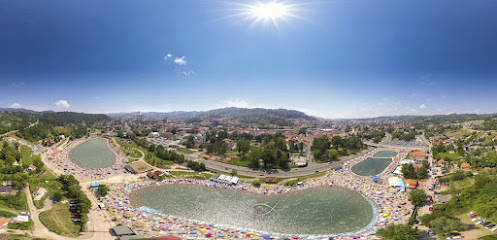
Bingo Zoo Tuzla
Discover diverse wildlife in a family-friendly setting at Bingo Zoo Tuzla, an attractive destination with recreational activities for all ages.
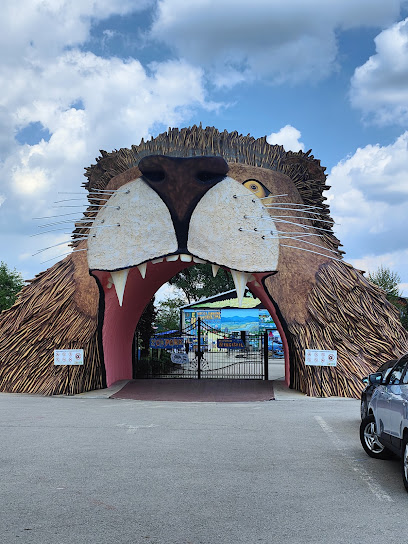
Cafe Bar Sloboda
Experience Tuzla's vibrant culture at Cafe Bar Sloboda, a charming spot known for its cozy atmosphere, delightful drinks, and warm hospitality.
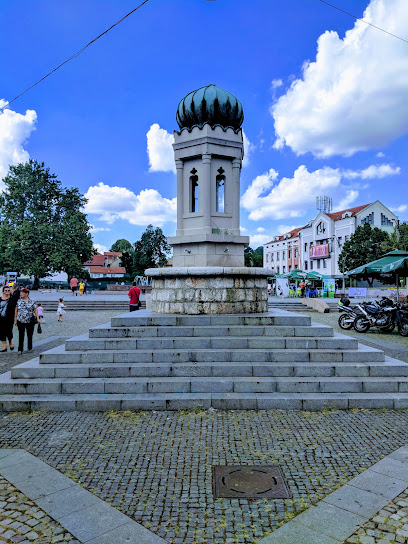
Srebrenik Fortress
Explore Srebrenik Fortress, Bosnia's best-preserved medieval castle, offering stunning views and a journey through centuries of history.
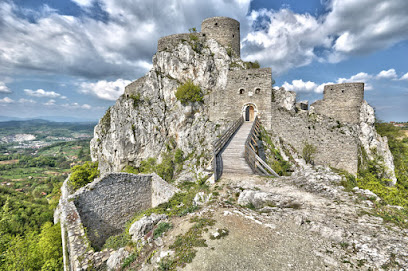
Slana Banja Sports and Recreation Complex
Discover Tuzla's vibrant heart: a blend of history, recreation, and natural beauty in the expansive Slana Banja complex.
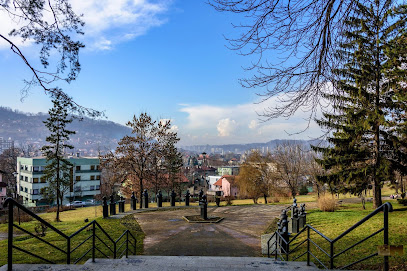
Nardi Pub
Experience Tuzla's vibrant nightlife at Nardi Pub: live music, delicious grills, and a wide selection of beers in a cozy atmosphere.
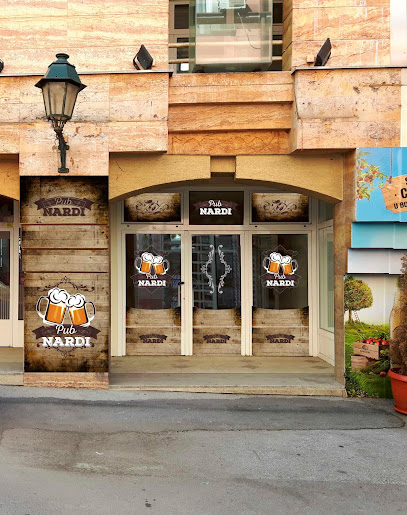
Pannonian Lake
Experience Europe's only salt lakes in the heart of Tuzla, offering recreation, history, and unique attractions for all ages.
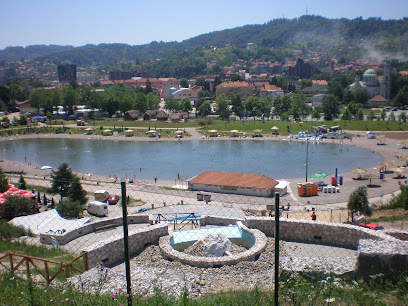
City park
Escape to tranquility in Tuzla's heart: Discover lush gardens, historical monuments, and serene pathways at City Park, a green oasis for all.
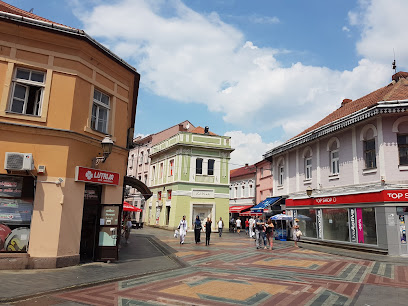
King Abdullah Bin Abdul Aziz Al Saud Mosque
Discover the architectural beauty and spiritual serenity of Tuzla's King Abdullah Bin Abdul Aziz Al Saud Mosque, a cultural gem.
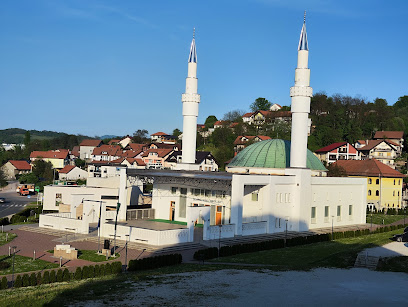
City of Tuzla
Explore Tuzla: A historic Bosnian city famed for its unique salt lakes, multicultural heritage, and rich history dating back millennia.
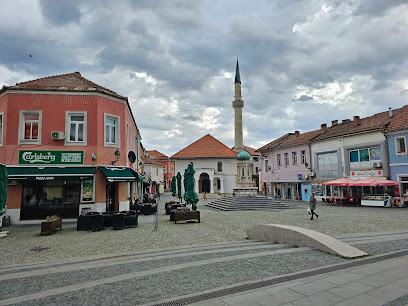
Turalibegova (Poljska) džamija
Discover Tuzla's rich Islamic heritage at the Turalibegova (Poljska) Mosque, a cultural landmark with stunning Bosnian architecture and a peaceful atmosphere.
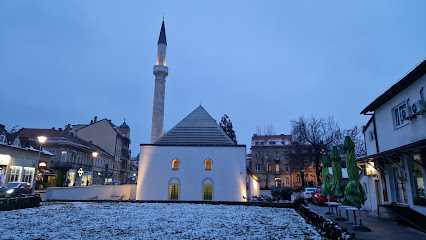
Restaurant Pannonian Hunter
Experience authentic Bosnian cuisine at Restaurant Pannonian Hunter in Tuzla, known for its inviting atmosphere and hearty, flavorful dishes.
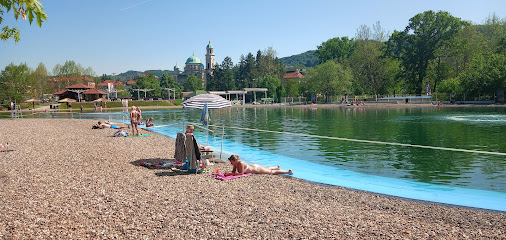
Guest House Pasha
Experience Bosnian hospitality at Guest House Pasha in Tuzla. Comfortable rooms, a peaceful garden, and a convenient location await.

Pivara Tuzla
Experience the taste of tradition at Pivara Tuzla, one of Bosnia's oldest breweries, crafting pilsner and other beverages since 1884.
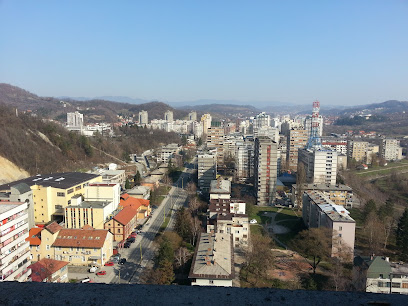
Mosque of Atik Behrem Bey
Discover Tuzla's oldest mosque, a serene Ottoman-era sanctuary showcasing exquisite architecture and rich Islamic heritage in the heart of Bosnia and Herzegovina.
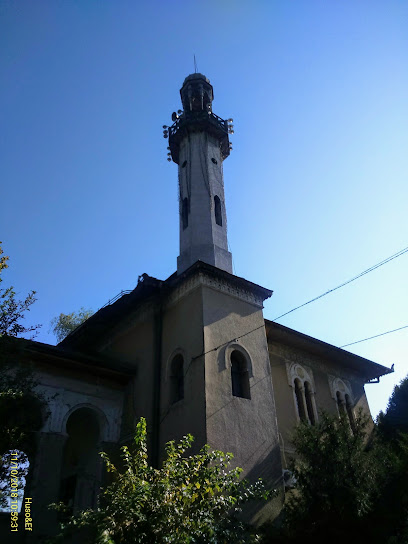
Unmissable attractions to see
Pannonica Salt Lakes
Experience the unique therapeutic qualities of Pannonica Salt Lakes, a stunning destination for swimming, relaxation, and family fun in Tuzla.
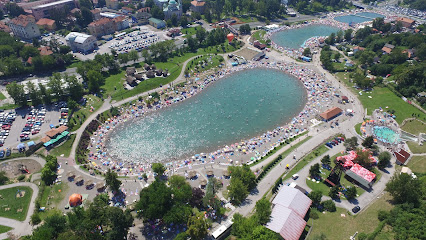
Slana Banja Sports and Recreation Complex
Discover the perfect blend of relaxation and recreation at the Slana Banja Sports and Recreation Complex in Tuzla, a haven for nature lovers and sports enthusiasts.
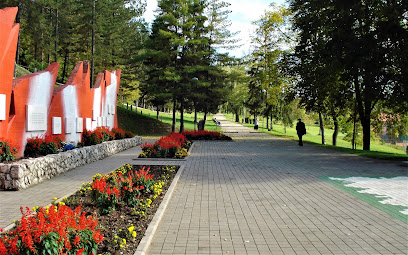
City park
Discover the lush greenery and serene pathways of Tuzla City Park, a perfect retreat for relaxation and leisurely strolls in the heart of Tuzla.
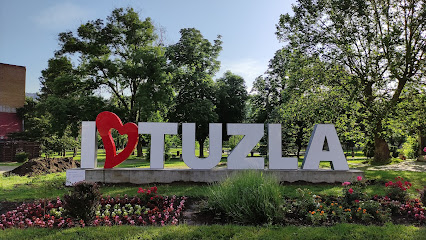
Mejdanska (Dželal vaiz Mehmed-Ali) džamija
Explore the Mejdanska Mosque in Tuzla, a stunning example of Ottoman architecture surrounded by serene gardens and rich history.
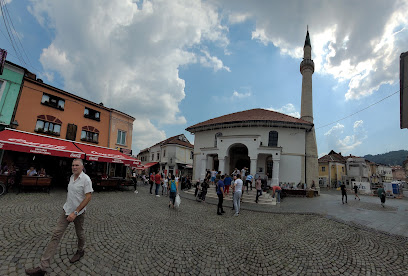
Dom prirode Ilinčica
Discover the serene beauty of Dom prirode Ilinčica, Tuzla's nature retreat perfect for outdoor adventures and family fun amidst breathtaking landscapes.
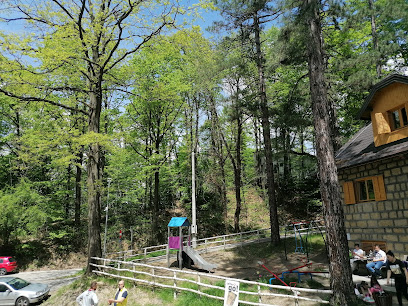
Čaršijska (Hadži Hasanova) džamija
Discover the beauty and history of Ćaršijska Mosque, Tuzla's iconic landmark, showcasing stunning Islamic architecture in a serene setting.
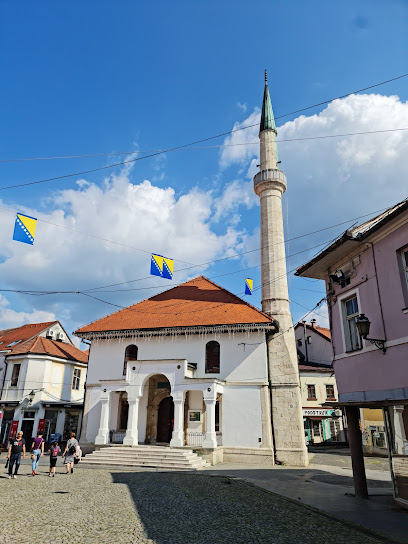
Fontana Solni Trg
Discover Fontana Solni Trg, a serene fountain in Tuzla's heart, perfect for relaxation and cultural immersion amidst the city's vibrant atmosphere.
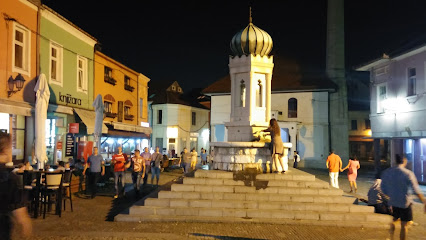
Museum of East Bosnia
Explore the rich heritage and captivating history of East Bosnia at the Museum of East Bosnia in Tuzla, a must-visit for cultural enthusiasts.
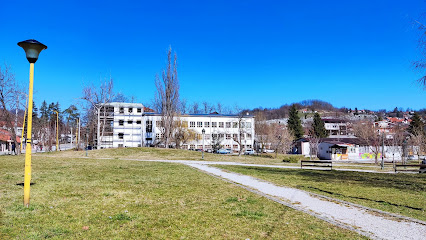
Ilinčica park
Discover the serene beauty of Ilinčica Park in Tuzla, a perfect hiking and nature retreat for every traveler seeking outdoor adventure.
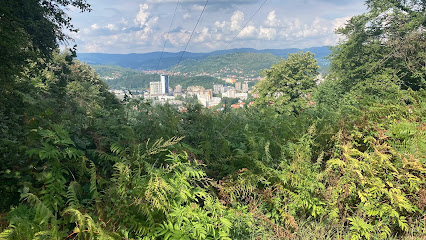
Vidikovac
Explore the peaceful Vidikovac Memorial Park in Tuzla, where nature meets history in a serene setting perfect for relaxation and reflection.
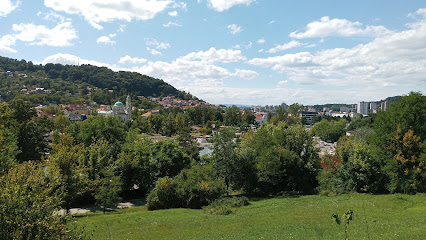
Leda
Experience the serene beauty of Leda, a captivating fountain in Tuzla, where tranquility meets exquisite nature in a picturesque setting.
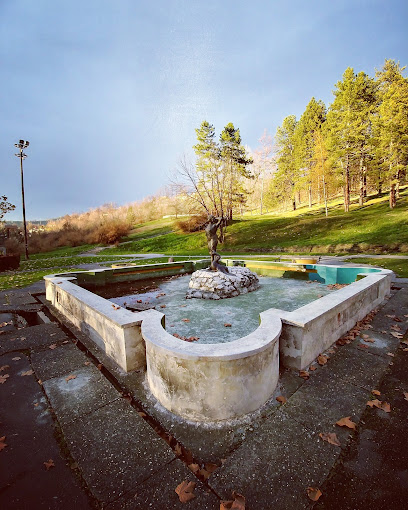
Husinski Rudar
Explore Husinski Rudar, a memorial park in Tuzla that pays tribute to the miners' legacy and offers a serene space for reflection and remembrance.
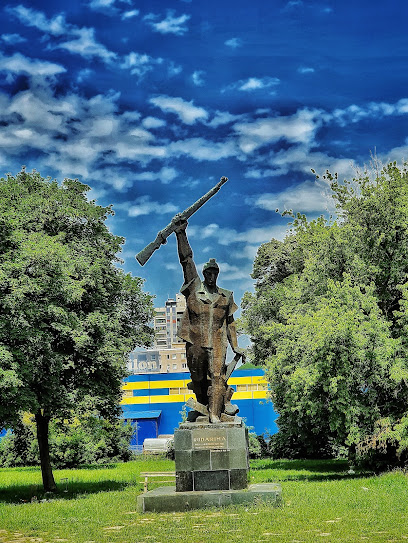
Arheološki park neolitsko-sojeničko naselje
Explore the ancient Neolithic settlement at Arheološki park in Tuzla, a unique archaeological site rich in history and culture.
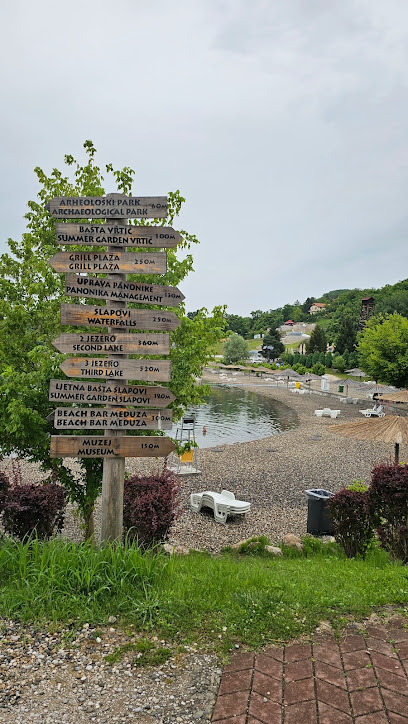
Park prirode Ilinčica
Explore the serene landscapes and diverse wildlife at Park prirode Ilinčica, a nature lover's paradise near Tuzla, Bosnia.
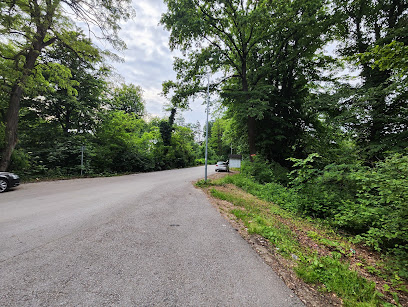
Panoramski točak Tuzla
Discover breathtaking views and serene moments at Panoramski Točak Tuzla, a perfect destination for relaxation and stunning photography.
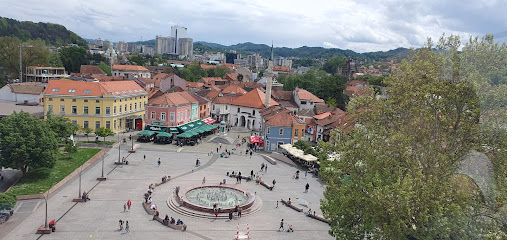
Essential places to dine
Restaurant Limenka
Discover authentic Bosnian cuisine at Restaurant Limenka in Tuzla - a culinary experience filled with tradition and flavor.
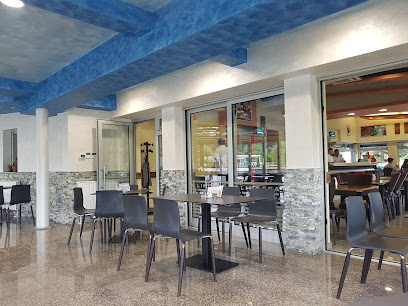
MamaMia
Experience exquisite dining at MamaMia in Tuzla – where traditional flavors meet modern cuisine in a warm and welcoming atmosphere.
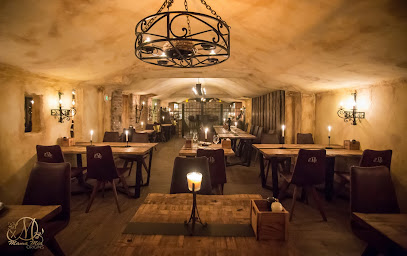
Palacinkara kod Bagija
Experience the best pancakes in Tuzla at Palacinkara kod Bagija - where sweet meets savory in every bite.
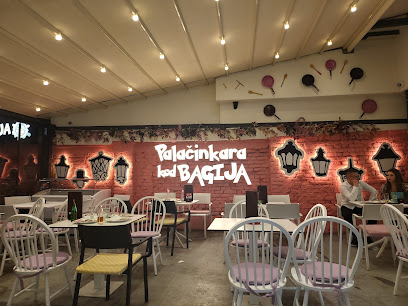
Restaurant Zlatnik
Discover culinary excellence at Restaurant Zlatnik in Tuzla - where every meal is a celebration of local flavors.
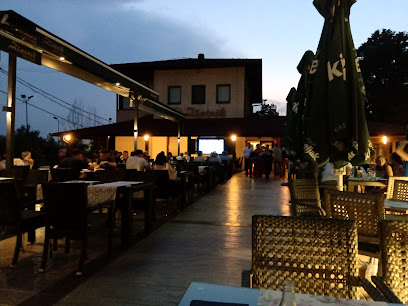
Sesam Tennis
Discover Sesam Tennis in Tuzla: A culinary haven offering diverse Bosnian and international dishes amidst beautiful surroundings.
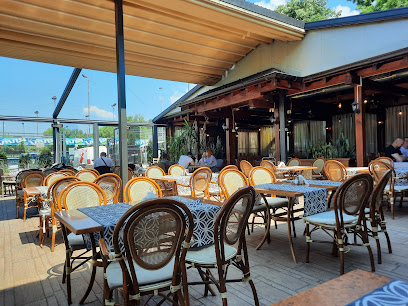
Sedra
Experience authentic Bosnian cuisine at Sedra in Tuzla—home of delicious kebabs and irresistible pizzas.
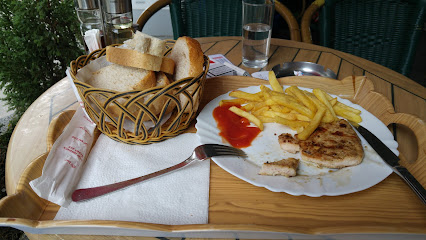
Restoran Sarajka
Experience authentic Bosnian cuisine at Restoran Sarajka in Tuzla – where tradition meets flavor in a cozy setting.
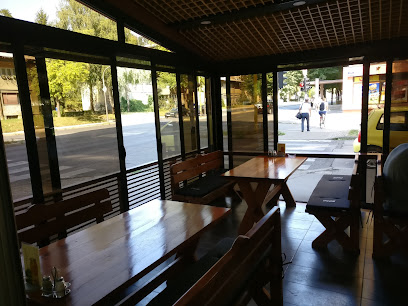
Sarajka
Experience authentic Bosnian cuisine at Sarajka in Tuzla - where every meal tells a story.
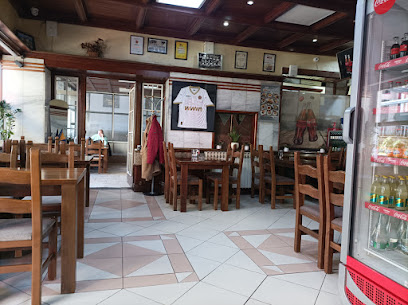
Jecmiste kod Tome
Experience authentic Bosnian cuisine at Jecmiste kod Tome in Tuzla – where traditional flavors meet modern hospitality.
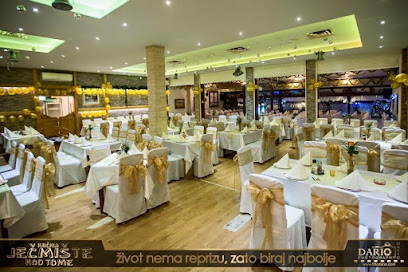
Restaurant Saranda
Experience authentic Bosnian flavors at Restaurant Saranda in Tuzla - where tradition meets taste in a cozy setting.
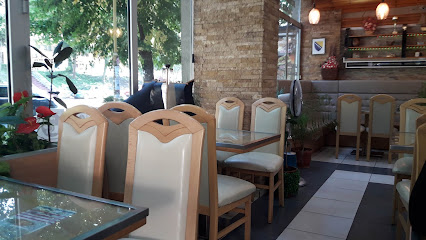
Taverna Play
Discover Taverna Play in Tuzla: where traditional Bosnian flavors meet fast food convenience in a welcoming atmosphere.
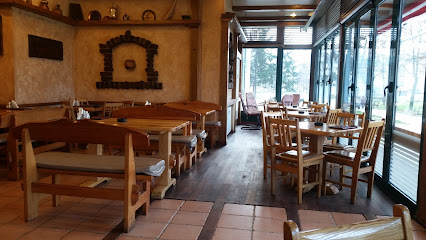
Nardi Pub
Experience the best grilled delights at Nardi Pub in Tuzla, where vibrant atmosphere meets flavorful cuisine.
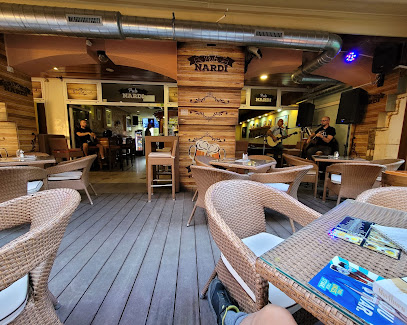
Sezam
Experience the essence of Bosnian cuisine at Sezam, Tuzla's beloved restaurant offering delightful dishes in a warm atmosphere.
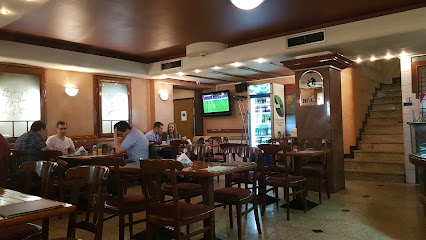
Pizza Bar
Experience authentic pizza flavors in Tuzla at Pizza Bar – where every slice tells a story of culinary passion.
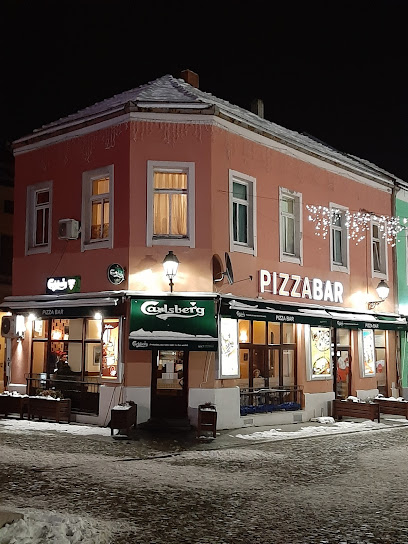
Mamamia
Discover Mamamia in Tuzla: A delightful restaurant offering local and international flavors with exceptional service.
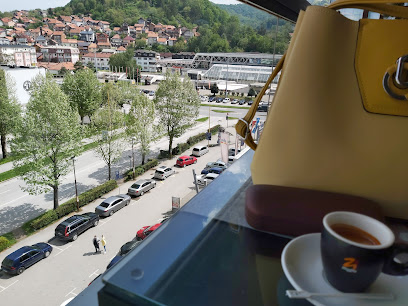
Markets, malls and hidden boutiques
Tuzlanka shopping mall
Explore Tuzlanka Shopping Mall in Tuzla: a vibrant hub of shopping, dining, and entertainment for an unforgettable experience.
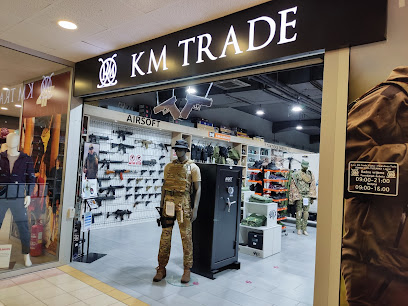
Mercator Center
Experience Tuzla's shopping and dining delight at Mercator Center, where local culture meets modern convenience.
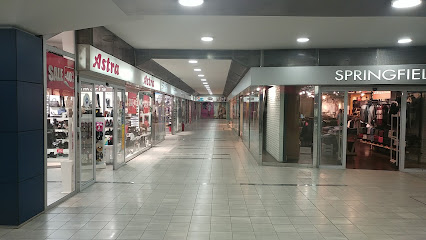
Techmann d.o.o.
Explore the finest wallpaper selection at Techmann d.o.o. in Tuzla, where quality and creativity meet for your home transformation.
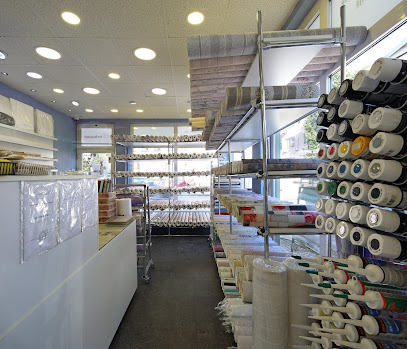
NEW YORKER
Discover the latest fashion trends at NEW YORKER in Tuzla, where stylish clothing and unique accessories await every shopper.
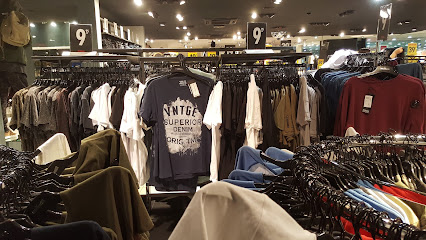
Azel France
Explore the latest fashion trends at Azel France, Tuzla's top clothing destination for tourists seeking style and quality.
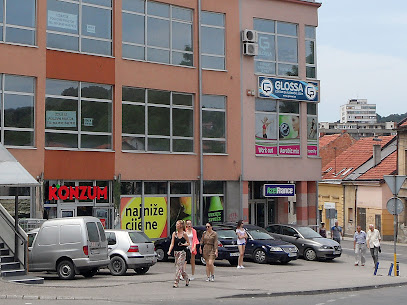
Konzum
Explore Tuzla's vibrant Konsum Supermarket for fresh produce, local delicacies, and a taste of Bosnia's culinary heritage.
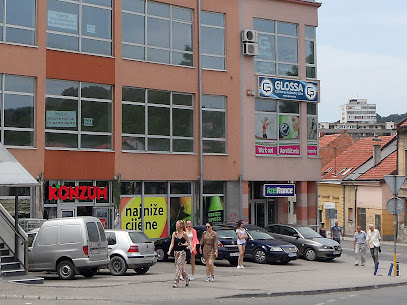
Fedi doo Tuzla
Discover Fedi doo Tuzla, the ultimate hobby store in Tuzla, offering a diverse range of supplies and a welcoming community for creative enthusiasts.
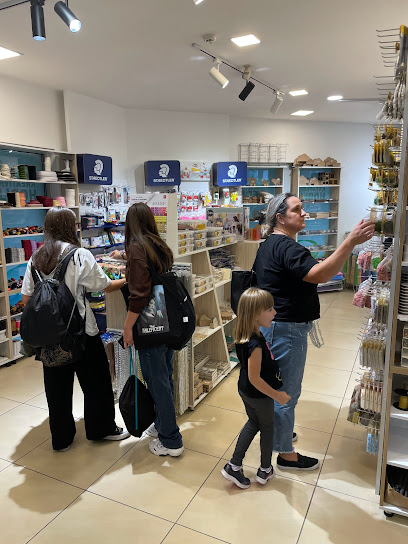
SINGULARIA D.O.O.
Experience the culinary delights of Tuzla at Singularia D.O.O., where fresh local produce meets international flavors in a welcoming atmosphere.
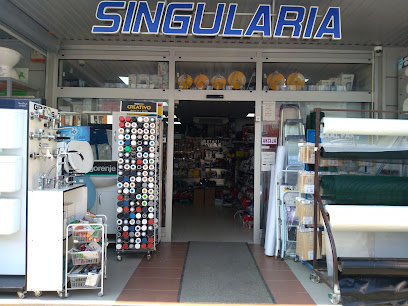
Techno Shop
Explore the latest in technology at Techno Shop, Tuzla's go-to electronics store for gadgets and devices.
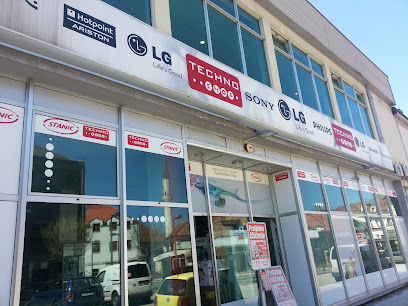
Orašnica
Discover the rich flavors of health at Orašnica, Tuzla's premier health food store and a treasure trove for wellness enthusiasts.
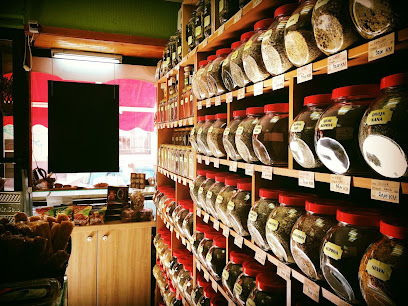
Tržni centar Sjenjak
Explore Tržni Centar Sjenjak, Tuzla's vibrant shopping mall offering diverse retail, dining options, and a taste of local culture in one exciting venue.
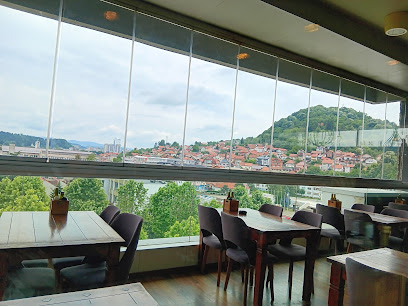
H&M
Explore the stylish offerings at H&M in Tuzla's Bingo City Centar, where fashion meets sustainability for every wardrobe.
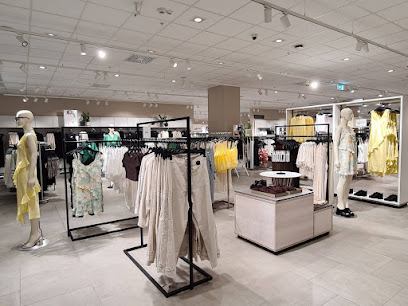
Stradivarius
Explore Stradivarius in Tuzla for trendy women's fashion, offering a diverse range of stylish clothing and accessories for every occasion.
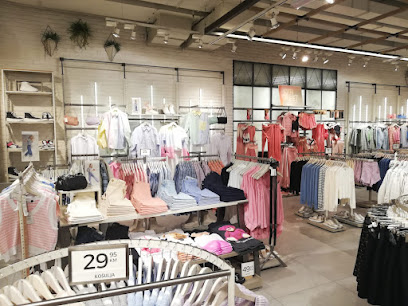
DUTY FREE SHOP TUZLA, Travel Retail Partner Bosnia d.o.o.
Discover tax-free shopping at Duty Free Shop Tuzla, offering a wide selection of international brands and local treasures at unbeatable prices.
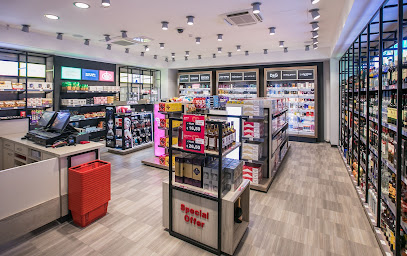
Top Shop
Explore Top Shop in Tuzla for a unique blend of local and international fashion, perfect for tourists seeking stylish souvenirs and trendy outfits.
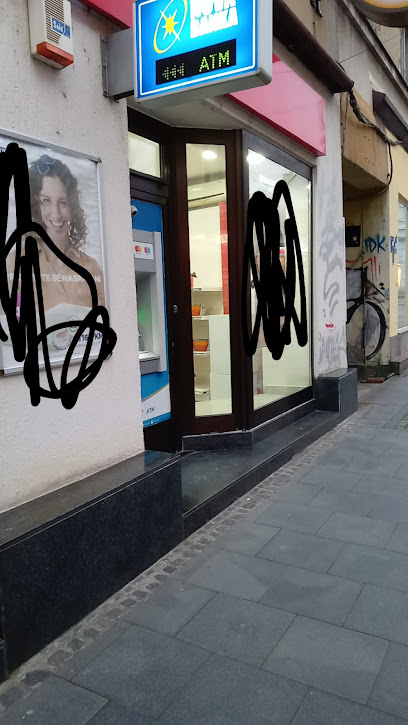
Essential bars & hidden hideouts
Pivnica Taverna
Discover authentic Bosnian flavors and craft beers at Pivnica Taverna in Tuzla, where local culture meets vibrant dining.
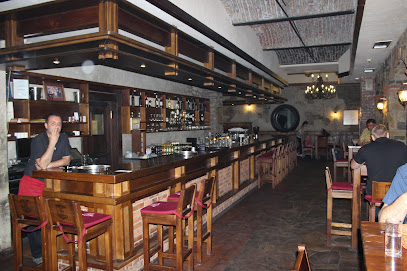
Cafe Bar Sloboda
Experience the vibrant local culture at Cafe Bar Sloboda, a charming bar in Tuzla offering delightful drinks and a warm atmosphere.
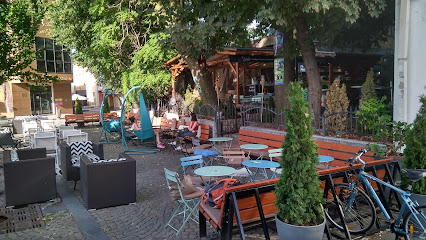
Nardi Pub
Discover the flavors of Bosnia at Nardi Pub in Tuzla, where grilled delights meet a vibrant bar atmosphere for an unforgettable dining experience.
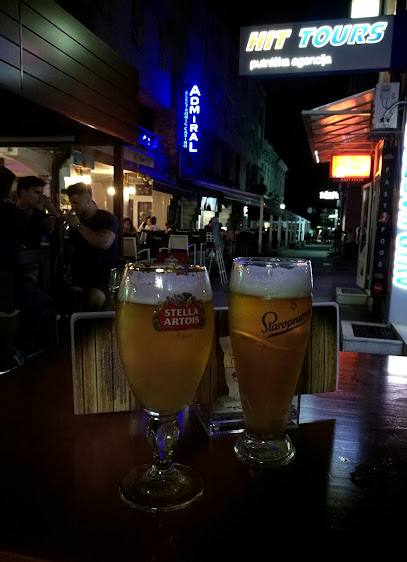
Just Caffe Pub
Experience the essence of Tuzla at Just Caffe Pub – a cozy blend of cafe charm and vibrant pub culture offering delightful beverages and local ambiance.
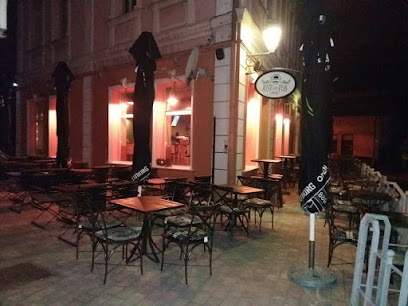
Park Pub
Experience the vibrant atmosphere of Park Pub in Tuzla, where local flavors meet a lively social scene, perfect for any visitor.
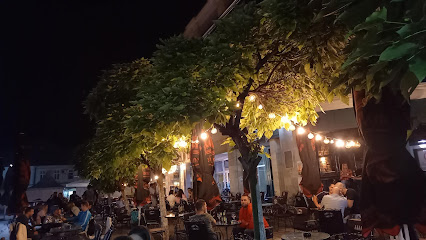
St. James's Irish Pub
Experience the charm of Ireland in Tuzla at St. James's Irish Pub, where traditional cuisine meets a vibrant atmosphere for an unmatched night out.
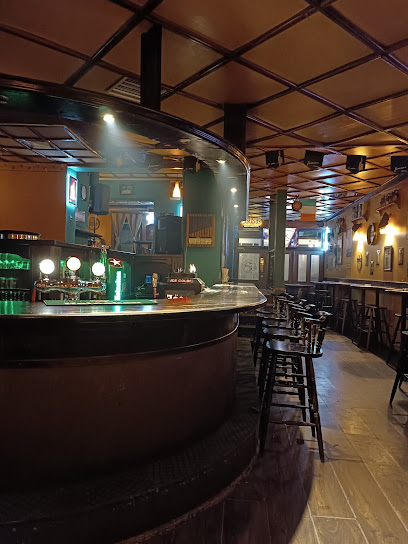
Old Story Caffe & Restaurant
Experience the rich flavors of Bosnia at Old Story Caffe & Restaurant in Tuzla, where each dish tells a story.
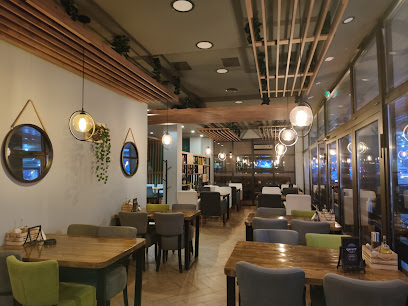
Black Prince Lounge Bar
Experience the vibrant hookah culture at Black Prince Lounge Bar in Tuzla, where relaxation meets lively entertainment in an inviting atmosphere.
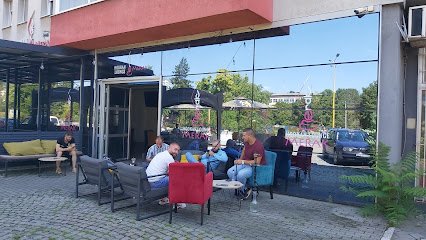
Jazz Caffe Tuzla
Experience the vibrant atmosphere and live music at Jazz Caffe Tuzla, where every sip is a celebration of jazz culture.
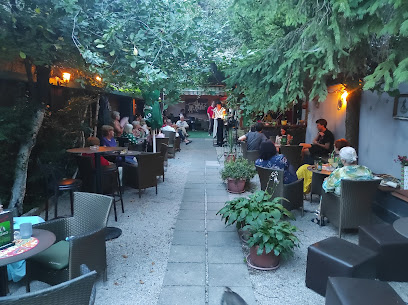
Cafe Bar Scala
Discover the vibrant atmosphere of Café Bar Scala in Tuzla - a perfect blend of local culture and refreshing drinks.
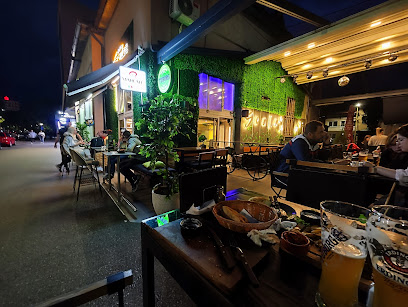
Campus Caffe
Discover the vibrant ambiance and diverse drink selection at Campus Caffe, Tuzla's favorite pub for locals and visitors alike.
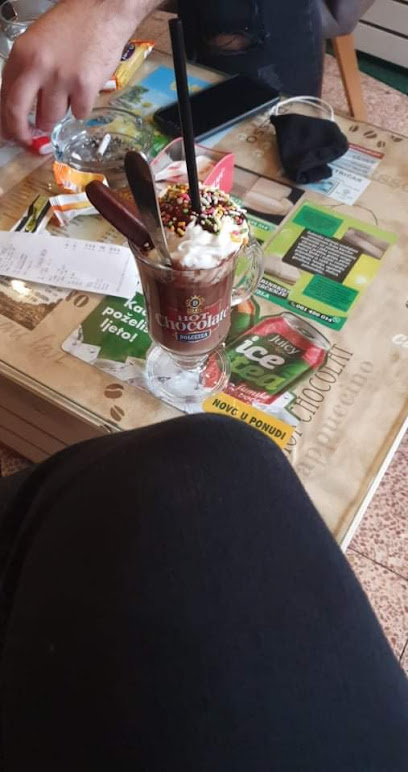
Snooker, Pool & Darts Club CLICK Tuzla
Enjoy competitive gaming and a vibrant social scene at Snooker, Pool & Darts Club CLICK in Tuzla, where fun and friendship come together.
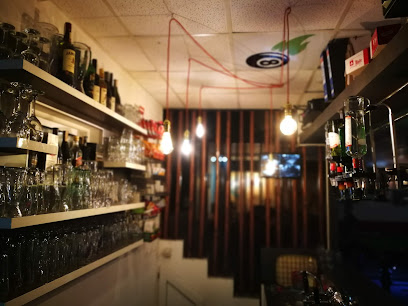
Arena
Discover the charm of Arena, a vibrant bar and café in Tuzla, where local culture meets affordable prices and a welcoming atmosphere.
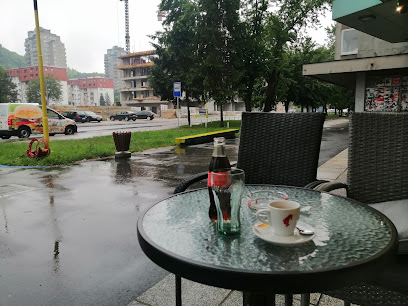
Hookah Avenue
Experience the vibrant ambiance of Hookah Avenue in Tuzla, where traditional hookah meets modern relaxation.
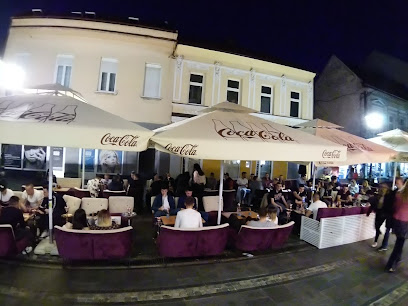
Local Phrases
-
- HelloZdravo
[Zdrah-voh] - GoodbyeDoviđenja
[Doh-vee-jeh-nyah] - YesDa
[Dah] - NoNe
[Neh] - Please/You're welcomeMolim
[Moh-leem] - Thank youHvala
[Hvah-lah] - Excuse me/SorryIzvinite
[Eez-vee-nee-teh] - How are you?Kako si?
[Kah-koh see] - Fine. And you?Dobro. A ti?
[Doh-bro. Ah tee] - Do you speak English?Govorite li engleski?
[Goh-voh-ree-teh lee ehn-gleh-skee] - I don't understandNe razumijem
[Neh rah-zoo-mee-yem]
- HelloZdravo
-
- I'd like to see the menu, pleaseMolio bih jelovnik, molim
[Moh-lee-oh bee yeh-lohv-neek, moh-leem] - I don't eat meatNe jedem meso
[Neh yeh-dem meh-so] - Cheers!Živjeli!
[Zhee-vyeh-lee] - I would like to pay, pleaseŽelim platiti, molim
[Zheh-leem plah-tee-tee, moh-leem]
- I'd like to see the menu, pleaseMolio bih jelovnik, molim
-
- Help!Upomoć!
[Oo-poh-mohtch] - Go away!Idi odavde!
[Ee-dee oh-dahv-deh] - Call the Police!Pozovite policiju!
[Poh-zoh-vee-teh poh-lee-tsee-yoo] - Call a doctor!Pozovite doktora!
[Poh-zoh-vee-teh dohk-toh-rah] - I'm lostIzgubio/la sam se
[Eez-goo-byoh/lah sahm seh] - I'm illBolestan/na sam
[Boh-leh-stahn/nah sahm]
- Help!Upomoć!
-
- I'd like to buy...Želim kupiti...
[Zheh-leem koo-pee-tee] - I'm just lookingSamo gledam
[Sah-moh gleh-dahm] - How much is it?Koliko košta?
[Koh-lee-koh koh-shtah] - That's too expensiveTo je previše skupo
[Toh yeh preh-vee-sheh skoo-poh] - Can you lower the price?Možete li spustiti cijenu?
[Moh-zheh-teh lee spoo-stee-tee tsee-yeh-noo]
- I'd like to buy...Želim kupiti...
-
- What time is it?Koliko je sati?
[Koh-lee-koh yeh sah-tee] - It's one o'clockJedan je sat
[Yeh-dahn yeh saht] - Half past (10)Pola (deset)
[Poh-lah (deh-seht)] - MorningJutro
[Yoo-troh] - AfternoonPopodne
[Poh-pohd-neh] - EveningVeče
[Veh-cheh] - YesterdayJuče
[Yoo-cheh] - TodayDanas
[Dah-nahs] - TomorrowSutra
[Soo-trah] - 1Jedan
[Yeh-dahn] - 2Dva
[Dvah] - 3Tri
[Tree] - 4Četiri
[Cheh-tee-ree] - 5Pet
[Peht] - 6Šest
[Shehst] - 7Sedam
[Seh-dahm] - 8Osam
[Oh-sahm] - 9Devet
[Deh-veht] - 10Deset
[Deh-seht]
- What time is it?Koliko je sati?
-
- Where's a/the...?Gdje je...
[Gdyeh yeh] - What's the address?Koja je adresa?
[Koh-yah yeh ah-deh-sah] - Can you show me (on the map)?Možete li mi pokazati (na mapi)?
[Moh-zheh-teh lee mee poh-kah-zah-tee (nah mah-pee)] - When's the next (bus)?Kada je sljedeći (autobus)?
[Kah-dah yeh sleh-deh-chee (ow-toh-boos)] - A ticket (to ....)Karta (za ....)
[Kahr-tah (zah)]
- Where's a/the...?Gdje je...
History of Tuzla
-
Tuzla's history dates back to the Neolithic period, making it one of the oldest continuously inhabited cities in Europe. Archaeological findings at the site of the Pannonian Lakes have revealed settlements from around 6,000 BC. The name 'Tuzla' itself comes from the Turkish word for 'salt,' which is a nod to its ancient salt mines.
-
During the Roman period, Tuzla was known as 'Salines,' a name reflecting its abundant salt resources. The Romans exploited these resources extensively, and the region became an important economic hub. Remnants of Roman infrastructure, including roads and fortifications, are still visible today.
-
In the medieval period, Tuzla was part of the Banate of Bosnia and later the Kingdom of Bosnia. It was a significant center for trade and salt production. Tuzla's strategic location and resources made it a contested area among regional powers, including the Ottoman Empire.
-
Tuzla fell under Ottoman rule in the 15th century, which lasted for over four centuries. The Ottomans left a lasting cultural and architectural imprint on the city. Noteworthy landmarks from this period include the Turalibeg's Mosque and the Behram-begova Medresa, one of the oldest educational institutions in the region.
-
Following the Congress of Berlin in 1878, Tuzla came under Austro-Hungarian control. This period saw significant modernization and industrialization. The Austro-Hungarians introduced new administrative structures, built infrastructure, and improved the salt production industry, which boosted the local economy.
-
Tuzla played a notable role during World War II as a center of resistance against the Axis forces. After the war, it became part of Socialist Yugoslavia. The city experienced rapid industrial growth, particularly in the chemical and energy sectors. The period also saw significant urban development and population growth.
-
The Bosnian War of the 1990s left a profound impact on Tuzla. Unlike many other cities in Bosnia and Herzegovina, Tuzla remained relatively intact, becoming a refuge for displaced persons. The city's multi-ethnic character and resistance to ethnic division were significant during this turbulent period.
-
In the post-war period, Tuzla has focused on recovery and development. The city has invested in tourism, leveraging its natural and historical attractions, such as the Pannonian Lakes and the old salt mines. Tuzla is also known for its vibrant cultural scene, hosting several annual festivals and events.
Tuzla Essentials
-
Tuzla is accessible via Tuzla International Airport (TZL), which has flights connecting to major European cities. The airport is about 15 kilometers from the city center. Public buses and taxis are available for transportation from the airport to the city. Alternatively, you can reach Tuzla by train or bus from other parts of Bosnia and Herzegovina, or from neighboring countries.
-
Tuzla has a well-developed public transportation system, including buses and taxis. Buses are a cost-effective way to get around the city, with routes covering most areas. Taxis are also readily available and relatively inexpensive. For those who prefer driving, car rental services are available at the airport and in the city center. Walking is a great option for exploring the city center and its nearby attractions.
-
The official currency in Bosnia and Herzegovina is the Convertible Mark (BAM). Credit cards are widely accepted in hotels, restaurants, and larger shops, but it is advisable to carry some cash for smaller establishments and markets. ATMs are plentiful in Tuzla, allowing for easy withdrawal of local currency.
-
Tuzla is generally a safe destination for tourists. However, like any urban area, it is wise to take standard precautions. Avoid walking alone at night in unfamiliar areas, and keep an eye on your belongings in crowded places. There are no specific high-crime areas targeting tourists, but staying vigilant is always recommended.
-
In case of an emergency, dial 112 for immediate assistance. This number connects you to emergency services, including the police, fire department, and medical services. Tuzla has several hospitals and clinics that provide medical care. It is advisable to have travel insurance that covers medical emergencies. Pharmacies are also available for minor health issues and over-the-counter medications.
-
Fashion: Do dress casually and comfortably, but modestly. Avoid overly revealing clothing, especially when visiting religious sites. Religion: Do respect local customs and traditions. When visiting mosques, cover your head and remove shoes. Public Transport: Do be respectful and offer your seat to elderly passengers. Don't eat or drink on public transport. Greetings: Do greet people with a handshake. In more formal settings, a slight bow of the head is a sign of respect. Eating & Drinking: Do try local dishes and accept food offerings graciously. Don't refuse hospitality, as it is considered impolite.
-
To experience Tuzla like a local, visit the local markets where you can buy fresh produce and traditional Bosnian goods. Engage with locals, as they are often friendly and willing to share stories about the city's history and culture. Don't miss out on the Pannonian Lakes, a popular spot for both locals and tourists. For a unique experience, visit the Salt Square (Trg Slobode), one of the largest squares in Bosnia and Herzegovina, and enjoy a coffee at one of the surrounding cafes.
Trending Landmark in Tuzla
-
Pannonica Salt Lakes
-
Bingo Zoo Tuzla
-
Cafe Bar Sloboda
-
Srebrenik Fortress
-
Slana Banja Sports and Recreation Complex
-
Nardi Pub
-
Pannonian Lake
-
City park
-
King Abdullah Bin Abdul Aziz Al Saud Mosque
-
City of Tuzla
-
Turalibegova (Poljska) džamija
-
Restaurant Pannonian Hunter
-
Guest House Pasha
-
Pivara Tuzla
-
Mosque of Atik Behrem Bey
Nearby Cities to Tuzla
-
Things To Do in Zenica
-
Things To Do in Sarajevo
-
Things To Do in Jajce
-
Things To Do in Novi Sad
-
Things To Do in Banja Luka
-
Things To Do in Belgrade
-
Things To Do in Mostar
-
Things To Do in Pančevo
-
Things To Do in Pecs
-
Things To Do in Smederevo
-
Things To Do in Kraljevo
-
Things To Do in Kragujevac
-
Things To Do in Subotica
-
Things To Do in Makarska
-
Things To Do in Nikšić









